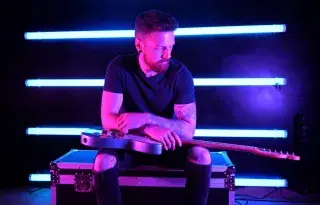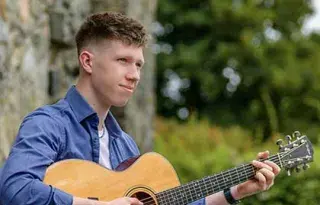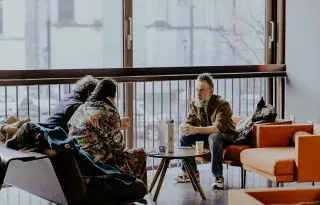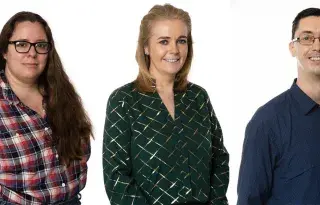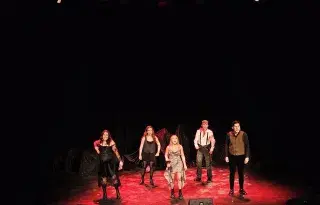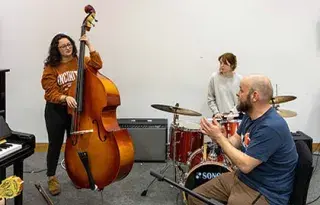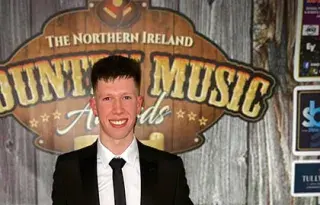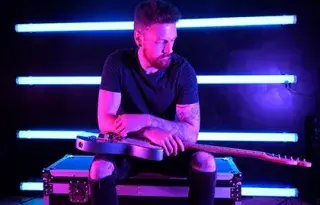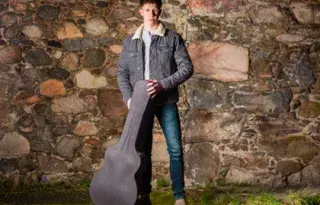BA (Hons) in Music and Performance Technologies
Search to find a different course
Course Overview
This course provides musicians with a broad range of musical experience and knowledge necessary to succeed in the contemporary music industry, in Ireland and beyond. These include both the musical and technological skills necessary for 21st century musicians, such as; performance, theory, composition, music production, digital collaboration, creative coding, and entrepreneurship. The aim in bringing together these two areas is to produce graduates who are competent and confident in the diverse range of knowledge and skills required by contemporary music creators, educators, and performers.
The course provides high-level training across multiple genres, including popular, contemporary, Western classical, Irish traditional, and global musics. For each of these genres, performance training is combined with cultural and theoretical background, with the ultimate goal of forming well-rounded musicians who can take up diverse career paths upon graduation.
What makes this course different
Work Placement
In Year 3 students undertake an industry work placement where students can gain important experience and industry contacts to help them in their future careers.
State-of-the-Art Facilities
Take advantage of the state-of-the-art facilities in the PJ Carroll’s building and gain opportunities to collaborate on creative projects with students across the Department of Creative Arts, Media and Music.
Understanding the Industry
The music industry is a dynamic and ever-evolving landscape that encompasses the creation, production, distribution, and consumption of music in various forms. From the recording studio to concert stages, the music industry fuels a diverse range of genres and styles, shaping popular culture and influencing society. Whether it is a chart- topping hit, an intimate acoustic performance, or an immersive music festival experience, the music industry continues to be a powerful force that resonates with people around the world.
Career Opportunities
Future Careers:
- Music performance
- Music tutoring, teaching, and lecturing
- Composition and songwriting
- Community music
- Arts marketing and promotion
- Arts management and administration
- Cultural tourism
- Festival programming and production
- Music journalism and digital content creation
- Music research
Course Delivery and Modules
The course is delivered through lectures, tutorials, practice-based learning and small group performance. Group work and collaboration are key aspects of the course. Students are fully supported by staff and are encouraged to pursue music-making opportunities both within and beyond the Department.
- Academic Writing and Research Skills
- Creative Collaborative Development
- DAW and Mic Applications
- Introduction to Musicianship
- Popular Music: Context
- Popular Music: Performance
- Vocal Skills
- Arranging, Notation and Sequencing
- Irish Traditional Music: Context
- Irish Traditional Music: Performance
- Musicianship for the Music Producer
- Creative Coding for Interactive Applications
- Harmony and Counterpoint
- Media and Society 1
- Sound Design for Games
- Western Art Music: Context
- Western Art Music: Performance
- Contemporary Music Composition and Context
- Contemporary Music Performance
- Electronic Music Production
- Elements of Popular Music: Songwriting
- Live Sound
- Music Education: Theories and Approaches
- Audio Industries
- Electroacoustic Composition: Composing with Sound
- Work Placement
- Community Music
- Creative Collaborative Project
- Ethnomusicology: Context
- Ethnomusicology: Performance
- Music and Audio Research Skills
- Culture, Society and Popular Music
- Devised Technology Performance
- Major Project
- Performance and Creative Practice
- Advanced Performance and Creative Practice
- Musicology: Issues and Approaches
Work placement
In Year 3 students undertake an industry work placement where students can gain important experience and industry contacts to help them in their future careers.
Education Progression
Students can apply for postgraduate opportunities at DkIT and elsewhere. Postgraduate opportunities in DkIT include:
MA in Creative Practice New course
Fees and Funding
Please find information on fees and funding here: www.dkit.ie/fees
Entry requirements
Standard entry requirements apply. There are no special entry requirements for this course.
- Standard Requirements for Leaving Certificate Applicants
- Standard Requirements for UK/NI Applicants
- Standard Requirements for QQI-Further Education Applicants
Recent CAO points
How to apply
Apply on CAO
All standard entry first-year applicants must apply for entry through the CAO. See Important application dates for CAO and information for specific applicant types below:
Advanced Entry & Transfer Applications
Advanced Entry is for applicants who have previous educational achievements and/or work experience and want to be considered for direct entry into year 2, 3, or 4 of a course. This includes students looking to transfer to DkIT from another Higher Education provider.
International Application (non-EU)
International Applicants (not from or living in the EU) can apply through an agent or directly to DkIT to study this course.
Ask us a Question
If you have a question about the BA (Hons) in Music and Performance Technologies please ask it below and we will get back to you.
Department Office
Course News
View all NewsDisclaimer: All module titles are subject to change and for indicative purposes only. All courses are delivered subject to demand and timetables are subject to change. Elective Module options will only run subject to student numbers. The relevant Department will determine the viability of each elective module option proceeding depending on the number of students who choose that option. Students will be offered alternative elective modules on their programme should their preferred elective option not be proceeding. Award Options for Common Entry Programmes: The relevant Department will determine the viability of each award option proceeding depending on the number of students who choose either option. If the numbers for one of the Award options exceed available places, students for this option will be selected based on Academic Merit (highest grades).
